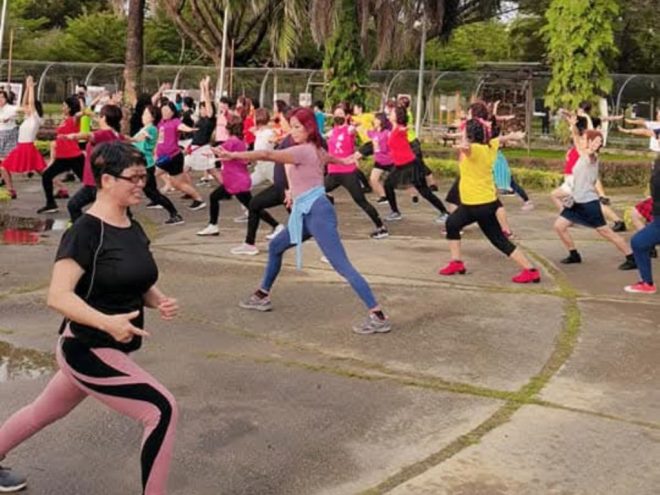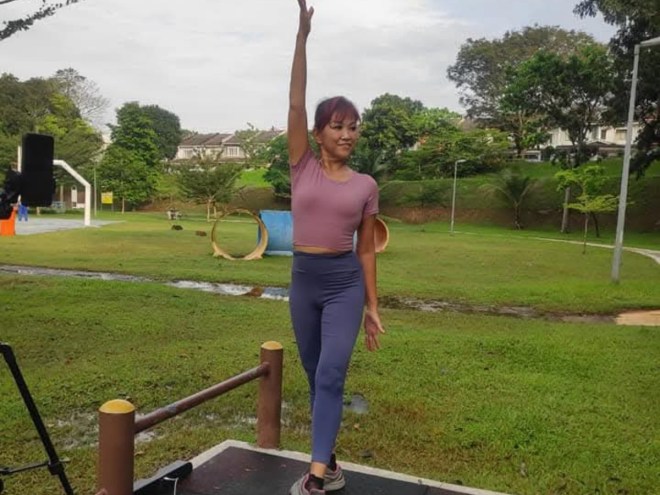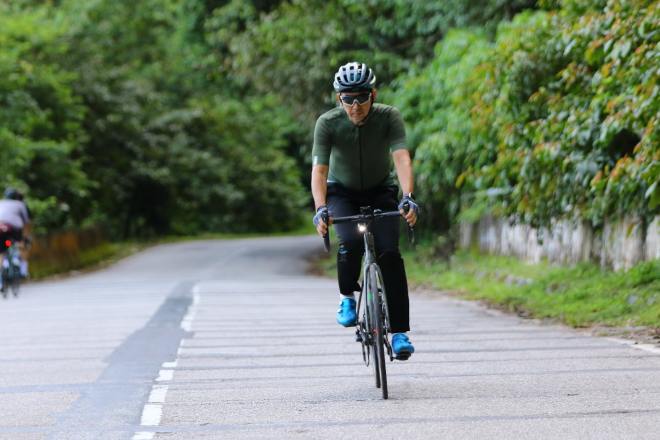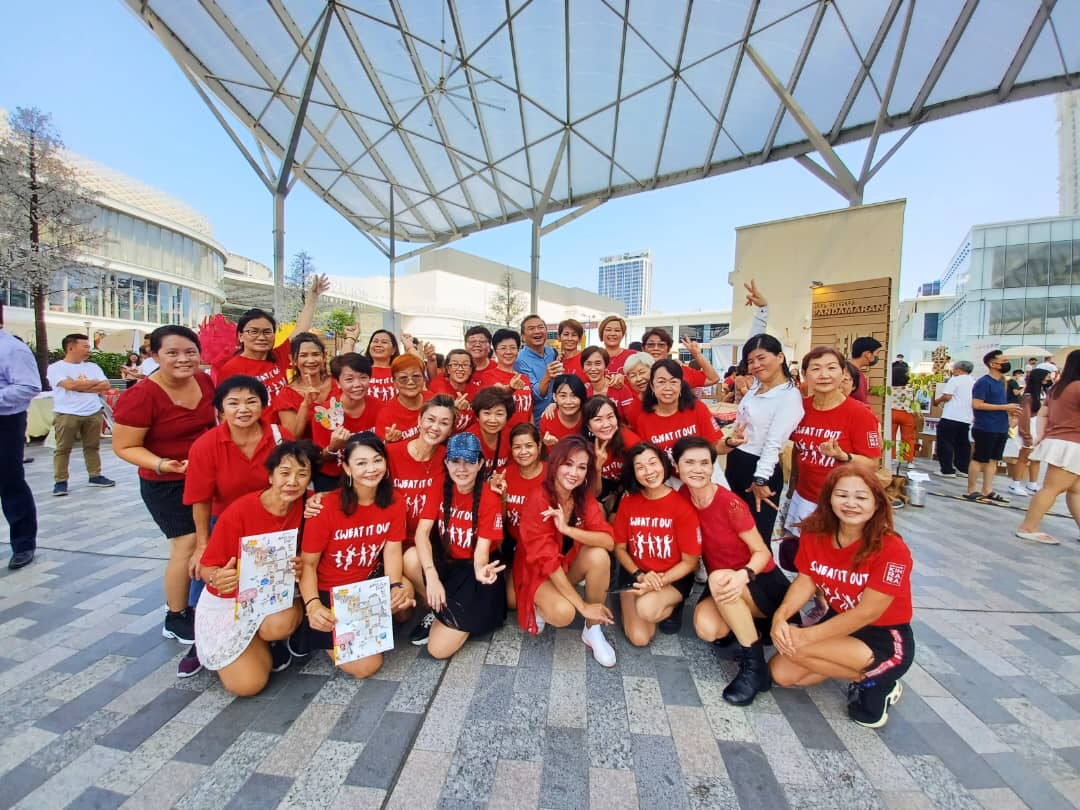KUALA LUMPUR, Sept 24 — A clinical dietitian has dispelled the myth that ageing inevitably comes with serious diseases, saying that healthy ageing is possible with a balanced diet and active lifestyle.
Prof Dr Chan Yoke Mun from the Department of Dietetics, Faculty of Medicine and Health Sciences, and Head of the Medical Gerontology Program at the Malaysian Research Institute on Ageing, Universiti Putra Malaysia (UPM), said that although the risk of non-communicable diseases (NCDs) like diabetes, hypertension, and heart disease increases with age, these conditions are not an “inevitable” part of ageing.
“It is definitely possible to age healthily without non-communicable diseases,” Dr Chan told CodeBlue in a recent interview.
“If we refer to the WHO (World Health Organization) definition of ‘healthy ageing’, it is the process of developing and maintaining the functional ability that enables an individual to age healthily.
“’Ageing’ itself does not have the same meaning as disease. It’s not synonymous with disease.”
She explained that a healthy lifestyle includes maintaining a balanced diet with regular and appropriate physical activity, a less sedentary lifestyle, good sleep, as well as good social engagement or networking, besides avoiding smoking and alcohol use.”
Strong evidence from large cohort studies like the Harvard Nurses’ Health Study and the Health Professionals Follow Up Study supports her stance, showing that adopting low-risk lifestyle factors can add more than a decade of disease-free life expectancy. This means Malaysians can fundamentally alter their ageing experience through lifestyle choices.
Beyond personal well-being, staying healthy into older age has become even more urgent amid well-known pressures on Malaysia’s health care system and the steep rise in medical insurance premiums for seniors.
Practical Steps For Healthy Ageing
Dr Chan provided practical advice rooted in evidence for Malaysians aiming to avoid or delay NCDs.
“Adopt a more balanced diet. Reduce excess intake of sugar, salt, and highly processed foods while ensuring that we have enough vegetables and fruits. Make whole grains, legumes, and healthier protein sources as part of our regular diet.”
Combined with physical activity, limiting alcohol consumption, and avoiding smoking, these measures create the foundation for healthy ageing.
She warned that many Malaysians are physically inactive, with half the population not exercising regularly and also being sedentary. Physical activity, both exercise and daily movements like walking and climbing stairs, should be increased.
“I also believe it is necessary for us to do regular health screening. Earlier screening alerts us and allows for earlier diagnosis before treatment or management of diseases can be done,” she added.
For senior citizens, healthy ageing includes social and community engagement to counter loneliness and enhance quality of life. Malaysia has initiatives like Pusat Activity Warga Emas (PAWE) and University of the Third Age (U3A) offering activities, workshops, and social opportunities tailored for older adults.
“All these will encourage older adults to remain active contributors to the society. We want the older adults to make themselves comfortable as part of the community so they can still contribute to society,” said Dr Chan, highlighting the holistic nature of healthy ageing.
Nutrition And Physical Activity For Older Adults

Dr Chan emphasised that nutritional needs change with age, but basic principles remain the same. The Malaysian Dietary Guidelines for Older Persons recommend a nutrient-dense diet, with a special focus on protein to maintain muscle mass and strength, often overlooked in older adults globally.
“Older adults often have a reduced sense of thirst. They don’t feel they are thirsty, they don’t feel the thirst sensation, making them prone to dehydration,” she said.
“When they are dehydrated, many things could happen including their metabolism getting less smooth and less optimised, and insufficient water intake can also make the older adults feel unable to have a proper digestion.”
The clinical dietitian advised limiting saturated and trans fats, salt, and sugar, while ensuring sufficient calcium intake to prevent osteoporosis. Weight management matters at all ages, but for seniors, the goal is maintaining appropriate nutritional status, aiming to avoid malnutrition or over-nutrition.
“We also want them to maintain a healthy body composition – enough muscle with controlled body fat so that their functional status is well preserved.”
Physical activity is not only safe but necessary for older persons. Dr Chan cited a senior completing a 10km run recently, disproving myths that seniors can’t be active.
She also recommended activities like walking, gardening, aerobic exercises such as brisk walking, cycling, swimming, dancing, and strength and balance exercises, including tai chi and yoga, to maintain cardiovascular health, muscle strength, and prevent falls.
However, before starting any exercise routine, it’s important for older adults to consult with a health care provider to ensure the activities are safe and suitable for their individual health needs.
Thriving At Age 61 With A Healthy Lifestyle

Linda Goh, a Herbalife distributor aged 61, reinforced the message that ageing does not have to be synonymous with sickness.
“I am not worried about ageing; it is inevitable and natural. I am only worried about contracting diseases or falling sick,” Goh told CodeBlue in an interview.
“I have made so many changes to my food intake and lifestyle to stay healthy at my age. I am 61 years of age and I have not needed treatment for any kind of sickness.”
After nearly a decade of adopting healthier lifestyle habits, Goh continues to enjoy good health and values her supporting community.
“The Herbalife community is very helpful and encouraging in my journey. We give each other a lot of motivation to stay healthy and fit, even as our age advances.”
Goh said it’s never too late to start making lifestyle changes to be healthier, reminding Malaysians that taking care of your health is also about lessening worry about your loved ones.
“Your kids do not have to worry about you all the time, and the same goes to your parents.”
Consistency And Community Support

Allen Peter, a Herbalife distributor aged 63, reflected the importance of consistency in healthy ageing habits.
“It’s not about taking what you believe you take, but it’s about being consistent – no matter how small it is,” Allen told CodeBlue in an interview.
Allen eats a healthy breakfast every day and consistently stays active. Having faced challenges like low energy, weight gain, and muscle loss in his past, Allen simplified his approach towards healthy ageing.
“What helped me manage was making nutrition simple – replacing unhealthy meals with healthier alternatives. Getting enough protein, especially getting enough protein formulation for muscle support, for metabolism,” he said.
He described good nutrition and staying active as “everything” for healthy ageing.
“Without the two, healthy ageing is almost impossible. So these two must work together. For me, nutrition plus activity is just like breathing in and out. You cannot do one without the other,” Allen added.
He also emphasised the role of community in maintaining motivation and accountability, touting Herbalife Nutrition Clubs.
“We motivate each other, share stories, and celebrate success – because motivation is really what keeps me going,” said Allen.
He said it’s never too late to start living healthily. “That’s what happened to me and I can see progressively, I have increased my ability to move, to carry things.”
“Starting simple, I first replaced my usual meal with a more nutritionally balanced option, such as a protein shake. I drank more water and moved my body. The most important thing, I believe, is for people to join a community that talks about a healthy, active lifestyle. From there, step by step, your health will improve,” Allen added.
Healthy ageing is no longer just a personal goal, but a pressing necessity. With mounting challenges in sustaining the health care system and the sharp rise in medical insurance premiums, particularly for those moving into senior age brackets, taking charge of one’s health becomes even more urgent.
By maintaining good habits, embracing an active lifestyle, and finding encouragement in supportive communities, older adults can better safeguard their well-being and reduce the burden of future care, while continuing to live with vitality and purpose.

